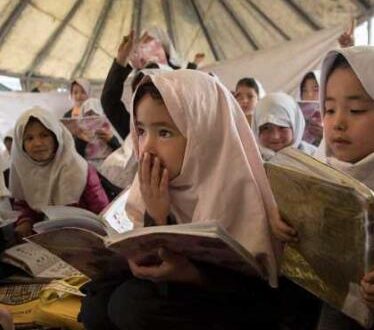Taliban rule has had a ruinous impact on Afghan women and girls, new exploration shows, Human Rights Watch and the Human Rights Institute at San Jose State University (SJSU) said moment. The associations looked at the conditions for women since the Taliban took control in Ghazni fiefdom, in southeastern Afghanistan.
Since taking control of the megacity of Ghazni on August 12, 2021, days before entering Afghanistan’s capital, Kabul, the Taliban have assessed rights- violating programs that have created huge walls to women’s and girls’ health and education, elided freedom of movement, expression, and association, and deprived numerous of earned income. Afghanistan’s fleetly raising philanthropic extremity exacerbates these abuses. Following the Taliban preemption, millions of bones in misplaced income, spiking prices, aid cut-offs, a liquidity extremity, and cash dearths started by former patron countries, especially the United States, have deprived much of the population of access to food, water, sanctum, and health care.
Afghan women and girls are facing both the collapse of their rights and dreams and pitfalls to their introductory survival,” said Halima Kazem-Stojanovic, a core faculty member of SJSU’s Human Rights Institute and a scholar on Afghanistan. “ They’re caught between Taliban abuses and conduct by the transnational community that are pushing Afghans further into despair every day.”
Human Rights Watch and SJSU ever canvassed 10 women presently or lately in Ghazni fiefdom, including those who had worked in education, health care, social services, and business, and former scholars.
They described twisting prices for food masses, transportation, and treatises, coupled with an abrupt and frequently total income loss. Numerous had been the sole or primary paycheck earner for their family, but utmost lost their employment due to Taliban programs confining women’s access to work. Only those working in primary education or health care were still suitable to work, and utmost weren’t being paid due to the fiscal extremity.
The Taliban have banned women and girls from secondary and advanced education, and altered classes to concentrate more on religious studies. They mandate what women must wear, how they should travel, plant isolation by coitus, and indeed what kind of cell phones women should have. They apply these rules through intimidation and examinations.
The future looks dark,” said one woman who had worked in the government. “ I had numerous dreams, wanted to continue studying and working. I was allowing of doing my master’s. At the moment, they (the Taliban) do n’t indeed allow girls to finish high academy.”
The women said they had acute passions of instability because the Taliban have disassembled the formal police force and the Women’s Affairs Ministry, are exacting plutocrat and food from communities, and are targeting for intimidation women they see as adversaries, similar as those who worked for foreign associations and the former Afghan government. Utmost pollsters cited serious internal health consequences since the Taliban preemption, including fear, anxiety, forlornness, wakefulness, and a deep sense of loss and helplessness.
“ The extremity for women and girls in Afghanistan is raising with no end in sight,” said Heather Barr, associate women’s rights director at Human Rights Watch. “ Taliban programs have fleetly turned numerous women and girls into virtual captures in their homes, depriving the country of one of its most precious coffers, the chops and bents of the womanish half of the population.”


No Comments Yet